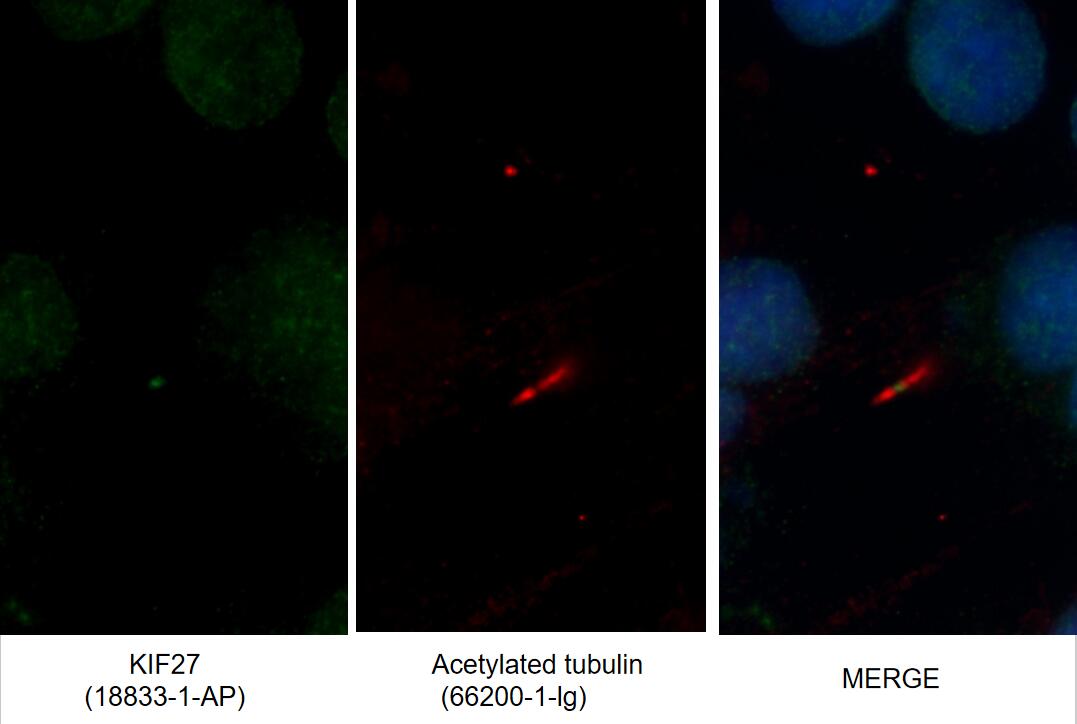验证数据展示
经过测试的应用
| Positive IF/ICC detected in | MDCK cells |
推荐稀释比
| 应用 | 推荐稀释比 |
|---|---|
| Immunofluorescence (IF)/ICC | IF/ICC : 1:20-1:200 |
| It is recommended that this reagent should be titrated in each testing system to obtain optimal results. | |
| Sample-dependent, Check data in validation data gallery. | |
产品信息
18833-1-AP targets KIF27 in IF/ICC, ELISA applications and shows reactivity with human, canine samples.
| 经测试应用 | IF/ICC, ELISA Application Description |
| 经测试反应性 | human, canine |
| 免疫原 | Peptide 种属同源性预测 |
| 宿主/亚型 | Rabbit / IgG |
| 抗体类别 | Polyclonal |
| 产品类型 | Antibody |
| 全称 | kinesin family member 27 |
| 别名 | Kinesin-like protein KIF27, Kinesin like protein KIF27 |
| 计算分子量 | 160 kDa |
| GenBank蛋白编号 | BC140788 |
| 基因名称 | KIF27 |
| Gene ID (NCBI) | 55582 |
| RRID | AB_2878561 |
| 偶联类型 | Unconjugated |
| 形式 | Liquid |
| 纯化方式 | Antigen affinity purification |
| UNIPROT ID | Q86VH2 |
| 储存缓冲液 | PBS with 0.02% sodium azide and 50% glycerol , pH 7.3 |
| 储存条件 | Store at -20°C. Stable for one year after shipment. Aliquoting is unnecessary for -20oC storage. |
背景介绍
KIF27 belongs to the kinesin-like protein family and it is a kinesin-4 motor with key roles in cytoskeletal function and ciliogenesis. KIF27 has a conserved function in microtubule organization which can influence microtubule dynamics. KIF27 is highly expressed in ciliated cells, such as olfactory sensory neurons, suggesting to be indispensable in the development and function of motile cilia. Unlike other family members, KIF27 is a slow motor due to its low phosphatase activity. (PMID: 29351996, 29450149, 21746835)
实验方案
| Product Specific Protocols | |
|---|---|
| IF protocol for KIF27 antibody 18833-1-AP | Download protocol |
| Standard Protocols | |
|---|---|
| Click here to view our Standard Protocols |
